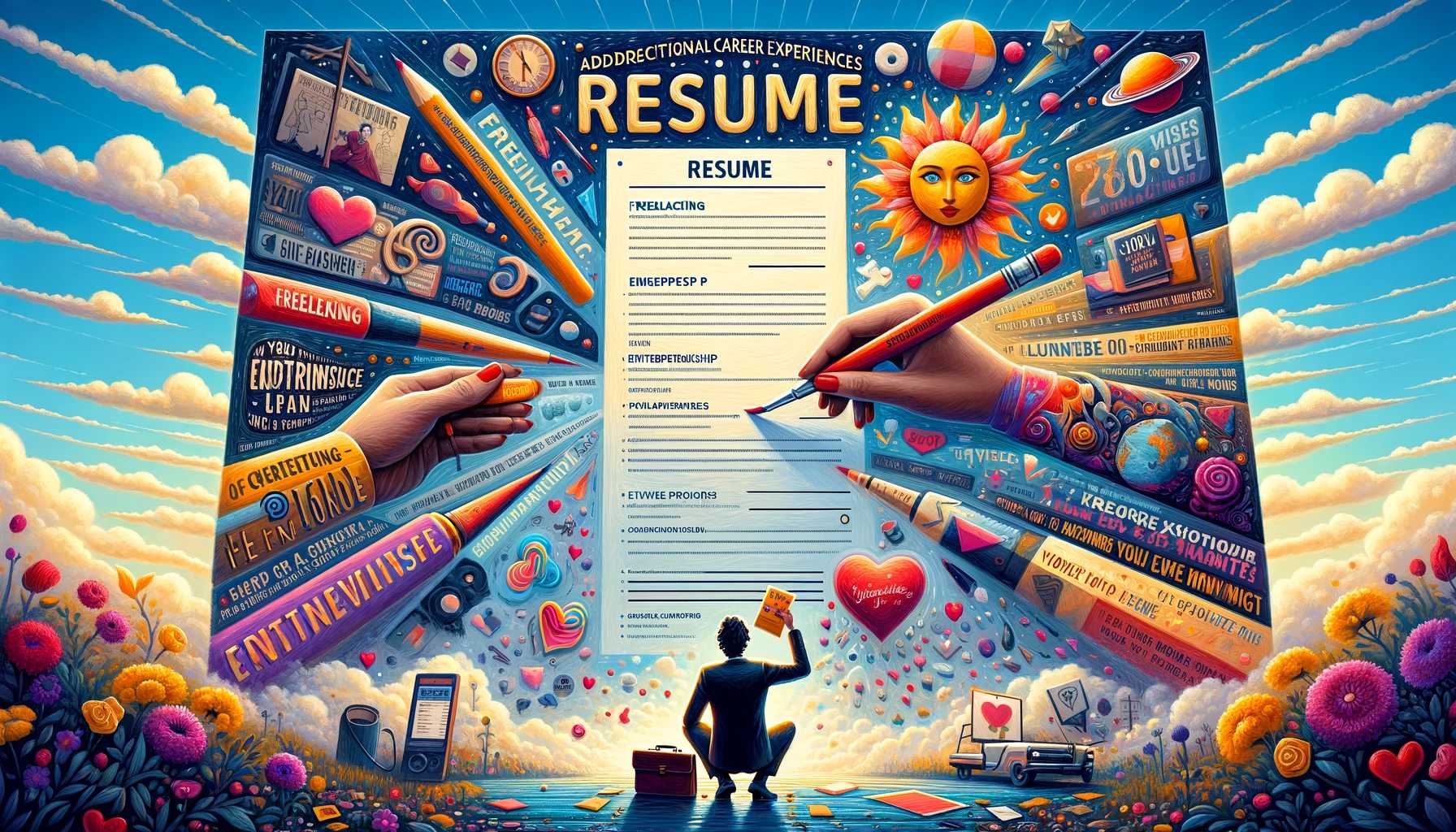Unconventional Paths: Addressing Unique Career Experiences in Resume Writing
In today's dynamic job market, professionals are increasingly pursuing unconventional career paths that diverge from traditional trajectories. Whether it's freelancing, entrepreneurship, sabbaticals, or pursuing passion projects, these unconventional experiences can add depth, diversity, and valuable skills to one's professional journey. However, effectively showcasing these unique experiences on a resume can be a challenge. In this blog post, we'll explore strategies for addressing unconventional career paths and experiences in resume writing to effectively highlight your skills, accomplishments, and adaptability to potential employers.
Embracing Diversity and Versatility
Unconventional career paths often result in a diverse range of experiences, skills, and perspectives that can be valuable assets in the workplace. Rather than viewing these experiences as deviations from the norm, embrace them as opportunities to showcase your versatility, adaptability, and willingness to take on new challenges. Highlight the unique skills, insights, and accomplishments you've gained from your unconventional experiences, demonstrating their relevance and value to prospective employers.
Tailoring Your Narrative
When addressing unconventional career paths on your resume, it's essential to craft a compelling narrative that effectively communicates your professional journey and achievements. Rather than simply listing job titles and responsibilities, use your resume to tell a cohesive story that highlights the progression, growth, and impact of your unconventional experiences. Focus on articulating the skills, accomplishments, and lessons learned from each role or endeavor, illustrating how they contribute to your overall career trajectory and goals.
Leveraging Transferable Skills
One of the key benefits of unconventional career paths is the development of transferable skills that are applicable across a variety of industries and roles. Identify the skills and competencies you've acquired through your unconventional experiences, such as project management, communication, problem-solving, and adaptability, and highlight them prominently on your resume. Emphasize how these skills are relevant to the positions you're applying for and how they can add value to potential employers.
Demonstrating Entrepreneurial Spirit
For professionals who have pursued entrepreneurship or freelancing, showcasing your entrepreneurial spirit and initiative can be a powerful differentiator on your resume. Highlight the innovative projects, ventures, or initiatives you've undertaken, along with any successes, challenges, or lessons learned along the way. Use concrete examples, metrics, and outcomes to demonstrate the impact of your entrepreneurial endeavors and how they reflect your drive, creativity, and ability to thrive in dynamic environments.
Addressing Career Gaps and Transitions
Unconventional career paths may also involve career gaps, transitions, or periods of exploration and self-discovery. Rather than trying to conceal or downplay these aspects of your professional journey, address them openly and proactively on your resume. Use your resume to explain the reasons behind any career gaps or transitions, such as pursuing further education, caring for family members, or taking time for personal development. Highlight the skills, experiences, and insights gained during these periods and how they contribute to your overall career narrative.
Showcasing Passion Projects and Side Ventures
Passion projects, side ventures, or hobbies can provide valuable insights into your interests, talents, and areas of expertise outside of traditional work settings. Incorporate these experiences into your resume to showcase your passions, creativity, and initiative. Whether it's launching a blog, developing a mobile app, or volunteering for a cause you're passionate about, highlight the skills, achievements, and impact of your passion projects to demonstrate your well-roundedness and commitment to personal and professional growth.
Highlighting Continued Learning and Development
Unconventional career paths often involve a commitment to lifelong learning, personal development, and skill enhancement. Use your resume to showcase any certifications, courses, or professional development activities you've pursued to further your knowledge and expertise. Emphasize your willingness to learn, adapt, and stay abreast of industry trends and advancements, demonstrating your proactive approach to professional growth and advancement.
Leveraging Networking and Personal Branding
Networking and personal branding can play a crucial role in navigating unconventional career paths and securing new opportunities. Use your resume to highlight any networking activities, industry affiliations, or online presence that reflect your professional brand and reputation. Include links to your LinkedIn profile, personal website, or professional social media accounts to provide recruiters with additional context and insights into your professional identity and network.
Conclusion: Embrace Your Unique Journey
Incorporating unconventional career paths and experiences into your resume requires a strategic and thoughtful approach to effectively showcase your skills, accomplishments, and potential to prospective employers. By embracing diversity, leveraging transferable skills, and crafting a compelling narrative, you can turn your unconventional experiences into valuable assets that set you apart from other candidates in the job market. Remember to tailor your resume to each opportunity, highlighting the aspects of your professional journey that are most relevant and compelling to the role and organization you're applying to. Embrace your unique journey, and let your unconventional experiences be a source of strength and differentiation in your career advancement efforts.









